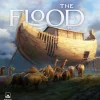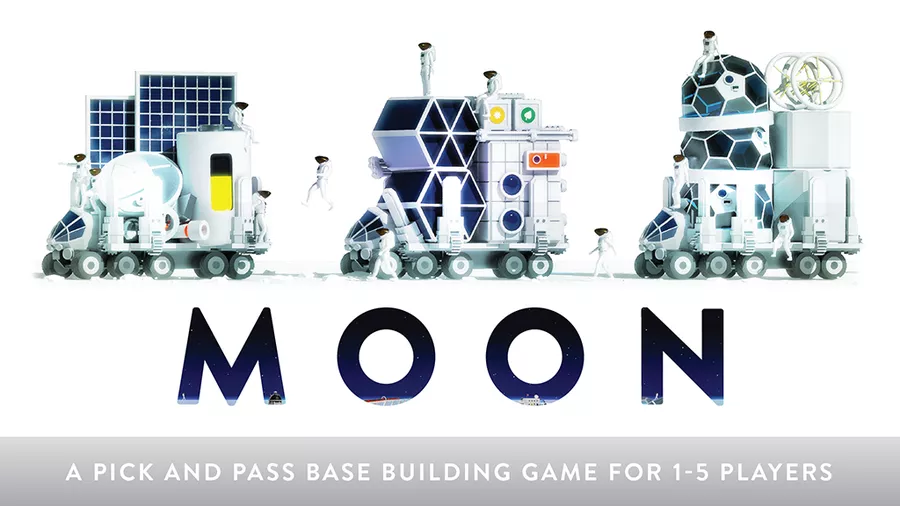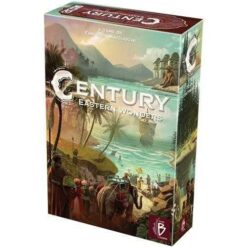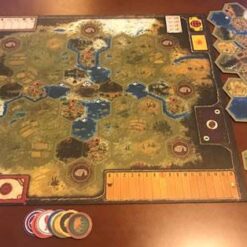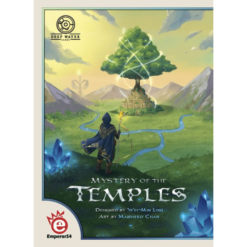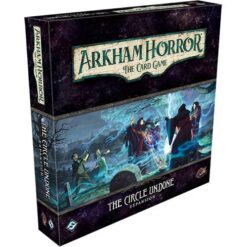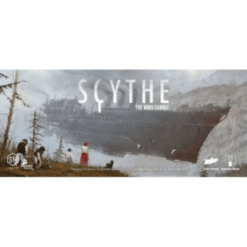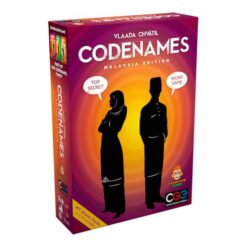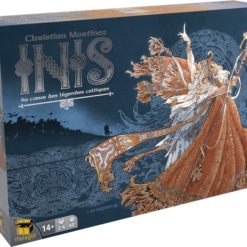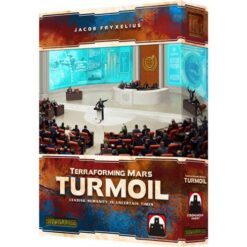Moon – Kickstarter
RM159.00 – RM209.00
Moon // Base – RM159.00
A copy of Moon: Retail Edition, Valkyrie expansion, and all associated stretch goals.
INCLUDES:
- Moon: Retail Edition
- Moon: Valkyrie Expansion
Moon // Super – RM209.00
A copy of Moon: Deluxe Edition, Valkyrie expansion, unlocked Deluxe upgrades, and all associated stretch goals.
INCLUDES:
- Moon: Deluxe Edition
- Moon: Valkyrie Expansion
Add-on
Custom Sleeves – RM96.00


Moon is the third game in a loose trilogy from Haakon Hoel Gaarder and Sinister Fish Games. Our story began here on Kickstarter in 2018 with Villagers and was followed by Streets in 2020. Villagers is ranked in the top 1000 games on BoardGameGeek, and Streets is in the top 3000.

Now, we invite you to join us on an amazing adventure that imagines 100 years of future history, where 1-5 players compete to found the capital city of the moon!

Moon is a game of pick & pass card drafting where you’ll develop infrastructure & resource production as you build up your base over three eras. The aim is to have the most popular base by the end of the game.

You’ll compete with the other players (or the solo AI) for valuable Reputation cards, and for bonuses at the end of each era. To aid your endeavours, Expedition cards move around the table giving a free special action to every player each turn, and your moon rovers can visit your opponents’ bases to gather extra resources for you.



Valkyrie is an expansion for Moon that is included FREE with every copy of the game sold on Kickstarter – after the campaign, its MSRP will be £10.
When you include the expansion in your game, every player gets a wooden Valkyrie spacecraft token which can be launched back to Earth once per era to obtain amazing new technology from the home planet.


In a game of Moon, players will choose one card from their hand and then pass the remaining cards to the player on their left. Each hand of cards represents an expedition travelling from one lunar settlement to another, offering blueprints and expertise along the way.


Moon is played over three rounds or eras. Each era represents about 30 years of lunar settlement. Every Era has three phases:
- Production – your structures generate resources and other useful things.
- Construction – the main part of the game where you expand your base.
- Scoring – collect bonus points for being an awesome base-builder!

Each hand of cards contains an Expedition card that grants an optional free action. Expedition cards stay in the same hand and are passed from player to player. They are refreshed from a new deck every era, so the opportunities they offer constantly shift around the table and through the eras.



Structure cards make up your base, and they require a combination of resources and flags.

Some basic structures like Ice Vapers and Solar Panels are free to build, but most require that you spend resources and/or have certain flags in your base.

There are five types of structures, defined by the colour of the card border. Yellow and blue cards provide resources and flags. Pink structures give you a powerful once-per-era action, and grey cards score end-game points.


Flags represent five different categories of permanent infrastructure. Many structures require you to have certain flags in your base, and flags also play an important role in the scoring phase at the end of each era. The player with the most flags of each type gets a popularity boost, and the reward for flag majority increases each era!

Hearts measure the popularity of your base back on Earth, and the most popular base at the end of era three will become the capital city of the moon, winning the game!

As the eras progress, bases will grow and diversify. There’s a lot to do and no one player can excel at everything. Perhaps your base can’t generate enough energy to construct a Workshop? Maybe you lack the industrial infrastructure needed to start up a Robot Factory? These problems might be solved by sending a rover over to one of the other bases as a trade for what you need…

Rovers are used to break ties for flag majority in the scoring phase, so sending them away is not always the best option.

Reputation cards are up for grabs in every game, each one setting a goal and offering a reward. If you meet the goal for a reputation card, you can claim it on your turn and reap the reward.

When you gain a reputation card you’ll either get a one-time bonus or an ongoing effect. They’re also worth points at the end of the game so ignore them at your peril!

Moon comes with 24 reputation cards so you’ll see a different combination of them in every game.

Moon comes with a great solo mode straight out of the box. A deck of cards pits you against General Universal Recursive Profit Systems (GURPS), a challenging AI opponent.

| Moon | Moon // Base, Moon // Super |
|---|
Related products
Economic
Euro Game
Hot Selling
Euro Game
Card Game
Area Control
Euro Game

